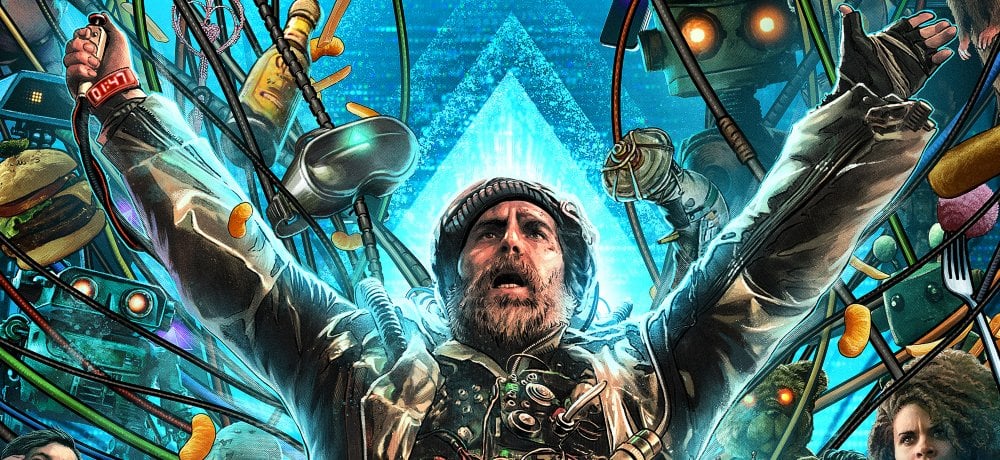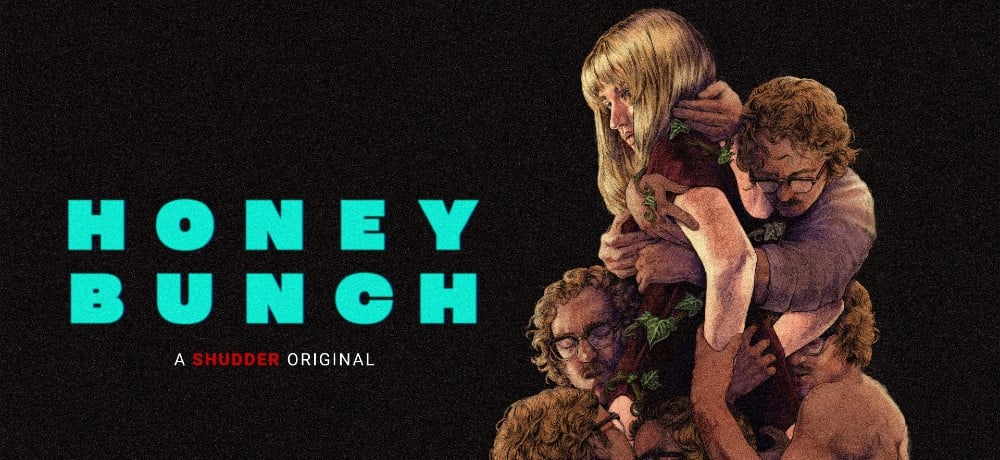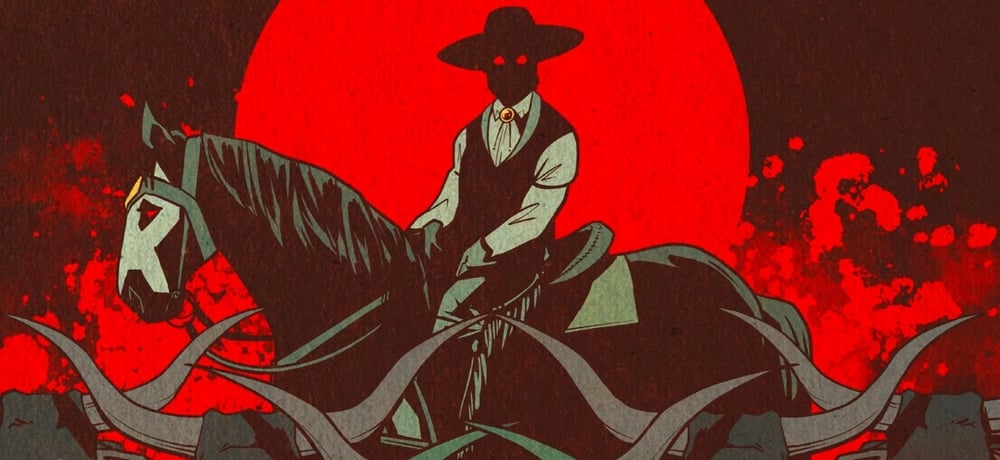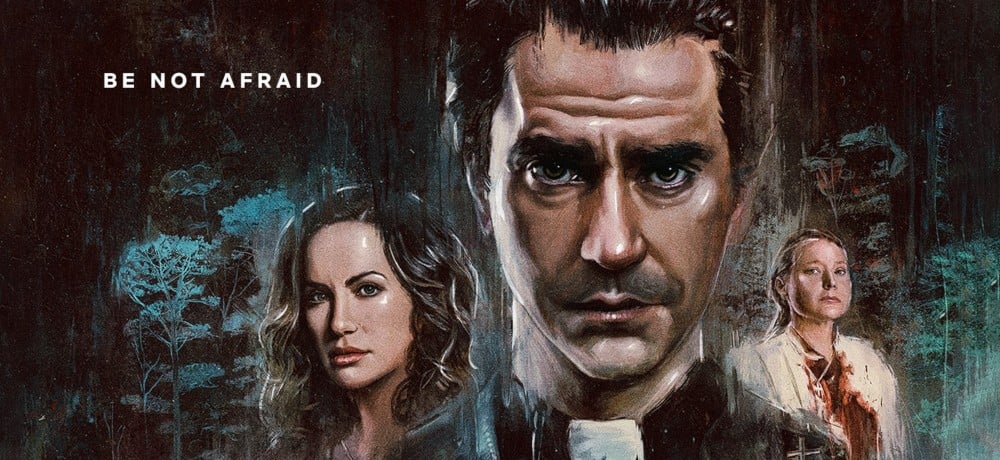






Last Friday, Mike Flanagan’s new series Midnight Mass launched exclusively on Netflix (you can read my review HERE), and all seven episodes are currently available to stream on the app. We wanted to give fans a few days to catch up with Midnight Mass before we started rolling out our coverage, just so nothing gets spoiled along the way. That being said, the following interview is spoiler free, so you can read on and know you’re safe.
In the first part of this roundtable interview, Midnight Mass creator Mike Flanagan and producer Trevor Macy discussed the long road they traveled while trying to get this project going over the last seven years or so. They also chatted about how they approached filming some of the series’ more intimate conversations and how Midnight Mass is Flanagan’s most personal creative endeavor ever as well.
Look for more on Midnight Mass in the coming week!
Mike, from your perspective, what was different for you in terms of the creative process on Midnight Mass versus other things that you've done in your career? Because this feels deeply personal. I mean, all of your work does, but this feels deeply personal in a way that I haven't really felt before.
Mike Flanagan: I think that's probably the biggest difference. The biggest difference between this and everything else is that I've been working on Midnight Mass for so long. Most of the other things I get to work on happen in these very prescribed windows of time. But Midnight Mass started before Oculus started. It's existed as a novel, it's existed as a screenplay for a feature, it's existed as a TV show twice before we got it made. I think the biggest difference for me is that this project has always been where my focus on putting all the personal stuff was. And that it was gestating for so long, and changing so much as I changed, that it just feels like it's been a part of it for so much longer than everything else.
It is certainly the most personal of the projects for me, in so much as it deals with a lot of what I think about faith and religion and what it means to be alive in the world and what the hell happens when we die, and all the little questions like that. And I think it also was born from a deep anxiety I had before I had admitted that I had a drinking problem and found sobriety. And I think I see cries of that throughout a lot of my past work, but this is the oldest, and it's so embedded into it.
Trevor Macy: This is the full Flanagan.
Mike Flanagan: I've heard people say this about other projects that are very personal, that there's something that happens when something is so personal that it becomes an invitation to other people. That it actually becomes more accessible. And I thought this project was deeply personal to me, but because the questions at the heart of it are so, so universal, it became deeply personal to Trevor. It became deeply personal to the writers in the writers’ room. It became deeply personal to the cast.
Because we all, I think, are wrestling. And no matter where we fall with our answers, our questions about, "Why are we here? What's the point of being alive, and what happens when we die? Where do the people we love go when they're gone?" That's universal. And so I think the only thing that divides us as people are the answers we come up with to those questions. The questions are 100 percent universal. So, while it's a very personal project, it seems to have become personal to a lot of people. And that's neat.
Trevor Macy: Well, it was very much an invitation. Certainly, I felt this way and I know the writers and cast did as well. And we hope the audience feels the same way, because these are questions everybody wrestles with.
Can you discuss your approach to those back-and-forth scenes between Father Paul and Riley, and how you were able to capture the drama of that dialogue through the camera as well?
Mike Flanagan: I always felt like these conversations were the heart of the show because they were dealing with addiction, because they were dealing with recovery, and because they were dealing with faith or lack of faith. We talked about it even in how we framed them, that the camera couldn't lend credence to one character's perspective more than another. That you couldn't frame Riley in a close-up and then dump Father Paul into a less flattering shot, or you couldn't drop the lens to give power to one of them and raise it to take it away from the other. That we needed to play out all of these perspectives sincerely.
And what I would talk about in the writers’ room was you see those stories of people playing chess against themselves, and trying to pour all of their effort into both sides of the board. And I thought that's the best way to look at how to write these scenes. It's the only way they're going to work.
Trevor Macy: It's reflected in the craftsmanship as well, yeah. You should talk about that.
Mike Flanagan: It became about a balance in the frame. That any angle that we selected for one of the characters, there needed to be the exact same angle for the other, and they always had to cut to each other. That you couldn't favor one of them in the edit in a nice close-up, but back out to the profiles on the other. That everything had to be matched and symmetrical. From a writing perspective, it was really neat, because it was about taking multiple passes at the scene wearing the hat of one of the characters. And I would usually start with Father Paul and try to get his perspective out there, and then put it away for a day. And then come back to it and start from scratch as Riley and try to dismantle Father Paul. But then come back, take another pass as Father Paul and try to dismantle Riley.
So the good news for that was that I've been working on Midnight Mass for so long that I have records of versions of these scenes that I wrote when I was in very different places. And in a lot of ways, there are versions of me throughout the years arguing with each other in these scenes. And so that was fun. It was fun to really try to take a position I believed in, and then honestly and authentically try to dismantle that position, which I think is healthy for all of us. But the biggest thing that I will say, though, is that these scenes hinge 100 percent on the actors. That there is not a 14-page AA scene you can write that is going to work if you don't have actors in place who can handle it, internalize it, and make it visceral and give it momentum and emotional stakes. And in that respect, we were very fortunate that we had Hamish [Linklater] and Zach [Gilford].
And in episode five, I mean, we're just sitting back and watching them. There are times where it was important to move the camera to underline something they did, but we approached the scenes in their totality, always, and said, "We're not going to break it up." It would drive them and us crazy to take a 15-page scene and cut it up into tiny bits and jump in and out of those bits and expect them to track it all. So when we shot it, we just went from the beginning to the end and let them do the whole thing, knowing that the actors would carry us through. And if we got the right coverage, we could cut the scene into something that would feel like it did when we watched it on stage. But what you guys see in the feeling of the way they played off each other is pretty much just what they did. There's very little editing.
Trevor Macy: Well, and the scaffolding we put around them is different. I give a lot of credit to Michael Fimognari, our DP, who helped design the shots. And on paper, if I just pitch you, "Here's a 14-page scene where people are articulating to each other in a room the core questions of the show," you might think that's going to be a little boring, right? But then it's incumbent upon Mike and Michael to design the shots and to find other gears. But God, they were prepared and they were amazing. And all we can do is hope that the audience feels like we did when we were watching these on the monitor for the first time.